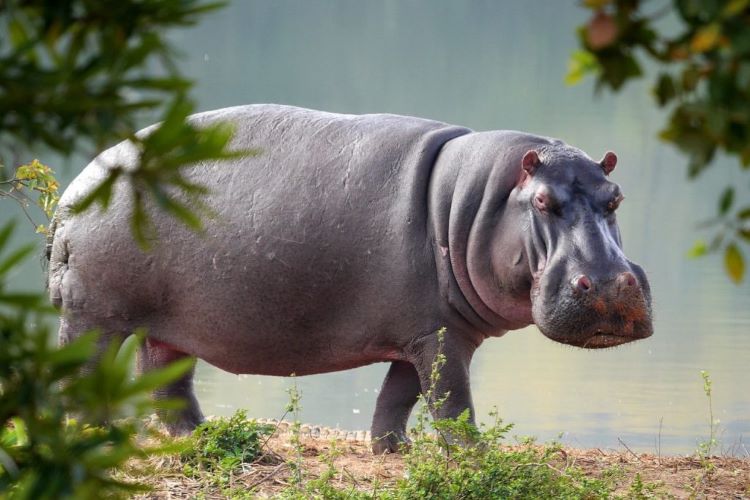Gombe farmers decry raging Hippopotamus attacks on farmland
 Distraught Farmers in Difa community in the Yamaltu/Deba Local Government Area of Gombe State have expressed concerns over the continued hippopotamus attacks ravaging their farmlands.
Distraught Farmers in Difa community in the Yamaltu/Deba Local Government Area of Gombe State have expressed concerns over the continued hippopotamus attacks ravaging their farmlands.
The farmers, who spoke in separate interviews with the News Agency of Nigeria (NAN) on Friday in the community, said incessant hippos’ attacks exposed them to losses and threatened food security effort of the government.
Mr Ali Umaru, a retired civil servant and farmer from Difa community said the yearly impact of hippos’ attack on farmland in their community had become unbearable and “extremely frustrating.”
Umaru said the animal had found comfort in Difa community because some part of the community was on the river bank and just two kilometres away from Dadin Kowa dam.
He said the animal which come in large number were fond of encroaching on their farmlands to eat and destroy crops planted by farmers especially during the dry season.
“They (Hippopotamus) come in the night mostly in a group of 10 to eat our rice, okro, water melon and others and retire from our farm by 6am and go back to their hiding places.
“This is very painful because the damage is pushing farmers into poverty and reducing the food that should have been sold to humans.
” The menace is really retrogressing effort at ensuring food security because farmers who cultivated 50 hectares may end up harvesting only 20 hectares, losing 30 hectares in some cases.”
He called on the Federal and the Gombe State governments to find a lasting solution to the issue, ” this is a national issue as we cultivate and contribute to food security too.”
Corroborating Umaru, Mrs Lois Joshua, another farmer said she had been affected as the animal had become a threat to their livelihoods in the community.
Joshua said hippos do invade their farmlands in large numbers of between 20 and 30 in some cases.
” Last year, the hippos ate three hectares out of the 50 I cultivated and they normal come close to harvest and soon we will be harvesting and many of us are very nervous.”
Mrs Amina Nuhu, another farmer in the community said they had resorted to hiring youths to guard their farmland especially at night by chasing the animals from their farms using torchlights.
According to Nuhu, each farmer now pay N20, 000 monthly to those guards to help them watch over their farmlands.
They appealed to the state government to urgently do the needful by establishing a ranch for the animal so they won’t encroach on farmlands.
“We are also asking for support too in form of fertilisers and inputs; the subsidised fertilisers being sold by the state government were not brought to our communities.”
When NAN contacted Mr. Ibrahim Yakubu, the Permanent Secretary Ministry of Agriculture and Animal Husbandry, Gombe State, the permanent secretary said he was hearing about the complaint for the first time.
Yakubu said that the concerns raised by the farmers had not been formally addressed to his office and he could not comment on their complaints.
“This is the first time I am hearing of Hippopotamus attack on farmlands.
“You know Hippopotamus is wildlife, so they can write to the ministry of environment and we can investigate, else we will not act on the farmers’ complaint,”.
Reacting to the concerns by the farmers, Mr Abubakar Hassan, the Permanent Secretary, Ministry of Environment, Gombe State appealed to the farmers to be patient, adding that the state government was aware of the issue.
Hassan said that the government was doing its best towards resolving issues that could result to hippos-human conflicts in communities along river banks in the state.
According to him, plans were underway by the state government to establish Hippopotamus colony to address hippos-human conflicts in such communities and to generate revenue by using the colony as a tourist site.
The permanent secretary said as part of the immediate solution, the state government had procured drones, flying boat and motorcycles to be used by forest guards to enhance surveillance on the waterways.
Hassan appealed to farmers not to harm the animals, adding that the species were endangered and would soon become a blessing to the communities when the state government establishes the hippos colony.












